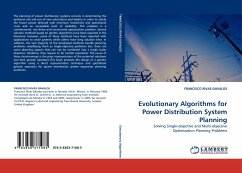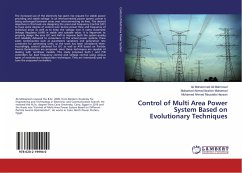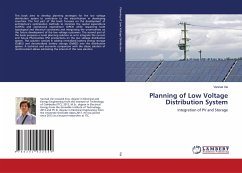The planning of power distribution systems consists in determining the optimum site and size of new substations and feeders in order to satisfy the future power demand with minimum investment and operational costs and an acceptable level of reliability. This problem is a combinatorial, non-linear and constrained optimization problem. Several solution methods based on genetic algorithms have been reported in the literature; however, some of these methods have been reported with applications to small systems while others have long solution time. In addition, the vast majority of the developed methods handle planning problems simplifying them as single-objective problems but, there are some planning aspects that can not be combined into a single scalar objective; therefore, they require to be treated separately. The cause of these shortcomings is the poor representation of the potential solutions and their genetic operators.This book presents the design of a genetic algorithm using a direct representation technique and specialized genetic operators for power distribution system expansion planning problems.
Bitte wählen Sie Ihr Anliegen aus.
Rechnungen
Retourenschein anfordern
Bestellstatus
Storno








